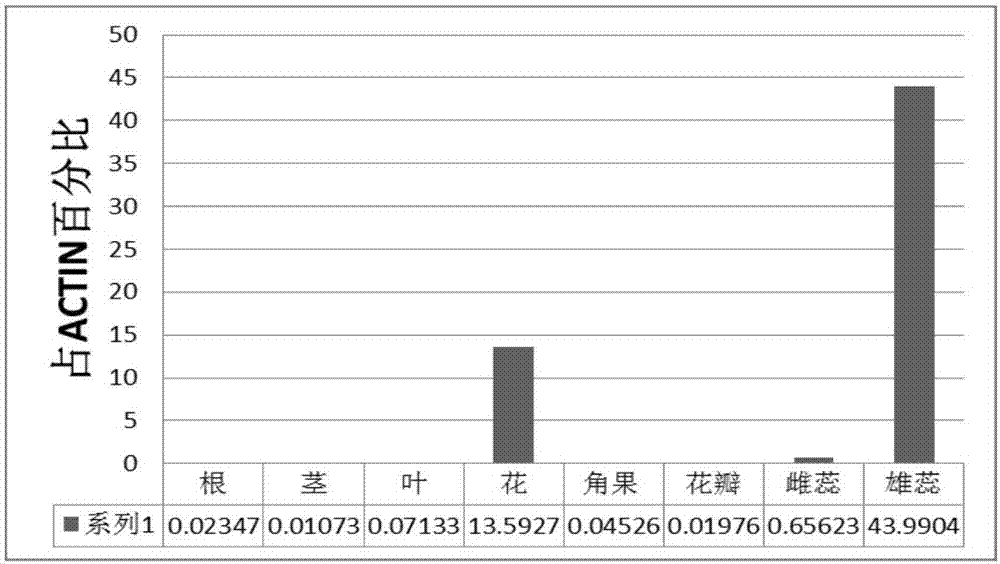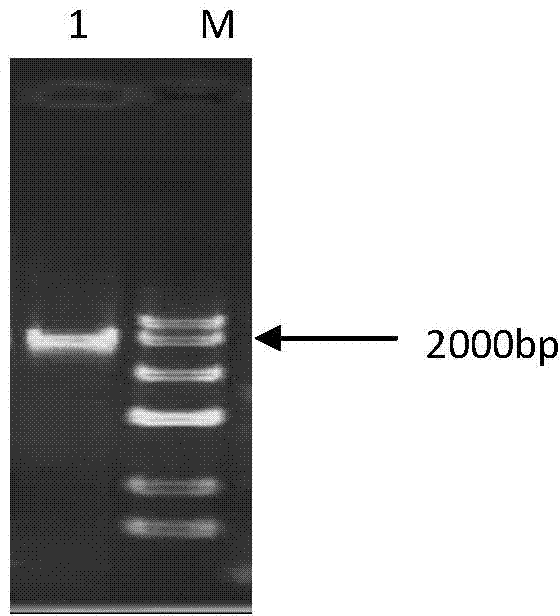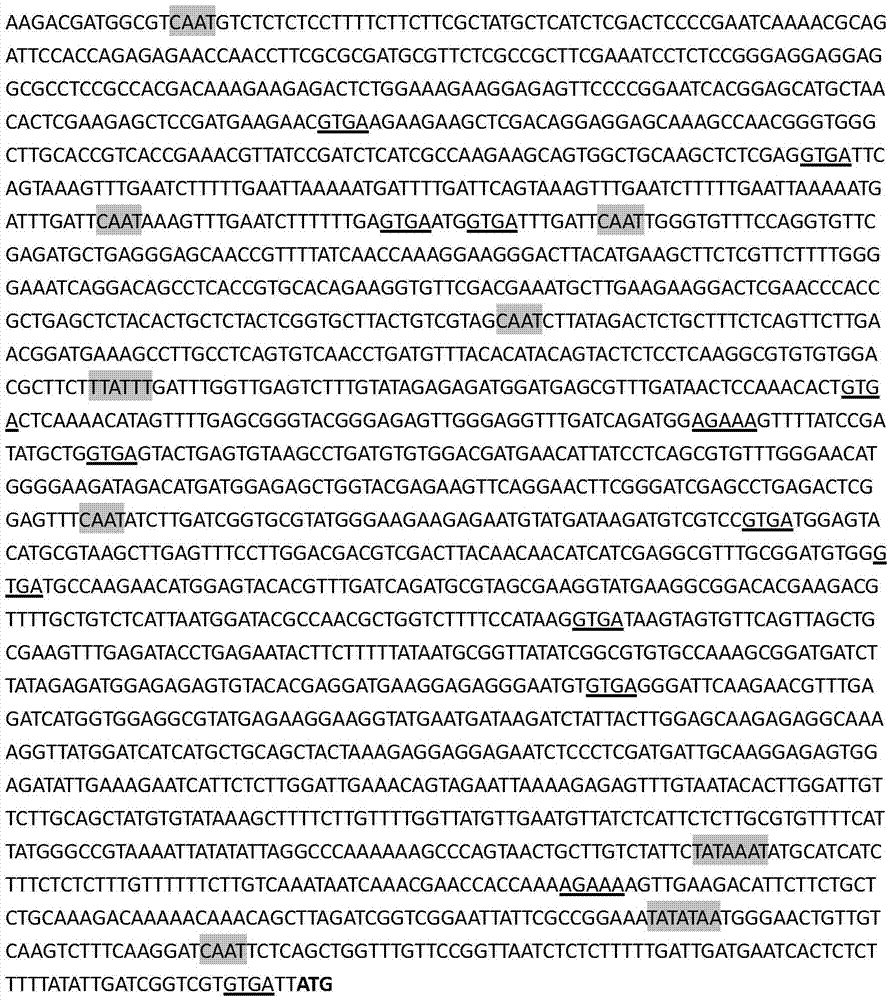Brassica napus p17673 promoter and its preparation method and application
A technology of Brassica napus, bn17673, applied in the field of plant genetic engineering and biology, can solve problems such as unsuitable production practice, unfavorable normal plant growth, and harmful ecological environment
- Summary
- Abstract
- Description
- Claims
- Application Information
AI Technical Summary
Problems solved by technology
Method used
Image
Examples
Embodiment 1
[0072] anther specific expression gene Bn17673 and promoter P17673 predictions:
[0073] The used rapeseed of the present invention is Brassica napus Zhongshuang No. 11 (mentioned above). The test materials were sown in the field and managed normally. Eleven tissues including roots, stems, leaves, flower buds, ovules, siliques, silique peels, stamens, pistils, sepals and petals were obtained from rapeseed plants grown under field growth conditions. Take at least three replicates of each material, and each replicate has at least one plant. After sampling, wrap it in tin foil, quickly place it in liquid nitrogen quick-freezing, and store it at -80°C. RNA was extracted using the Trirol extraction kit (described above) according to the requirements of the kit. The extracted RNA was sent to Shenzhen BGI Institute for reverse transcription, library construction, and transcriptome sequencing using the solexa sequencing technology (described above). The amount of sequencing data f...
Embodiment 2
[0075] rape P17673 Expression pattern analysis of driven endogenous genes:
[0076] The test materials were sown in the field and managed normally. Get roots, stems, leaves, flower buds, siliques, pistils, stamens, and petals from the rapeseed Zhongshuang No. 11 (as described above) plant grown under field growth conditions. Take at least three replicates of each material, and each replicate has at least one plant. After sampling, wrap it in tin foil, place it quickly in liquid nitrogen, and store it at -80°C. Extract RNA (method described above). Fluorescent quantitative PCR instrument is IQ5 (Bio-Rad Company), using rapeseed Actin (accession number AF111812) as an internal standard gene, Actin Gene primers were forward primer 5'-CTGGAATTGCTGACCGTATGAG-3' and reverse primer 5'-ATCTGTTGGAAAGTGCTGAGGG-3'. Endogenous genes driven by P17673 Bn17673 The primers were 5' ACAAATACTTGGTCCCACGAGA 3' and 5' ACCCGTTTGAGGAAGTGTGTTA 3'. The fluorescent quantitative PCR reaction s...
Embodiment 3
[0080] A Brassica napus promoter P17673 The preparation method of promoter, its step is:
[0081] 1. Rapeseed promoter P17673 Primer sequences:
[0082] Based on the whole genome sequencing of rapeseed Bn17673 The upstream 2.2kb sequence of the gene was designed with 1 pair of primers for PCR amplification. The primers used were P17673S: 5'- AGAAGACGATGGCGTCAATGT -3' and P17673A: 5'- AATCACACGACCGATCAATATAAAA -3'.
[0083] 2. Preparation of rapeseed promoter P17673:
[0084] Use the SDS lysis method (described above) to extract genomic DNA from rapeseed leaves, and use this as a template for PCR amplification. The steps are: extract 25 μl of genomic DNA, and use this as a template for amplification. The reaction system is 50 μl, and 10× Ex Taq buffer 5 μl, dNTP 4 μl, 5’ primer 1 μl, 3’ primer 1 μl, ExTaq 0.5 μl, DNA template 1 μl about 100ng, ddH 2 O 37.5 μl. Based on the whole genome sequencing of rapeseed Bn17673 The primers used for PCR design of the upstream 2.2kb s...
PUM
 Login to View More
Login to View More Abstract
Description
Claims
Application Information
 Login to View More
Login to View More - R&D
- Intellectual Property
- Life Sciences
- Materials
- Tech Scout
- Unparalleled Data Quality
- Higher Quality Content
- 60% Fewer Hallucinations
Browse by: Latest US Patents, China's latest patents, Technical Efficacy Thesaurus, Application Domain, Technology Topic, Popular Technical Reports.
© 2025 PatSnap. All rights reserved.Legal|Privacy policy|Modern Slavery Act Transparency Statement|Sitemap|About US| Contact US: help@patsnap.com



